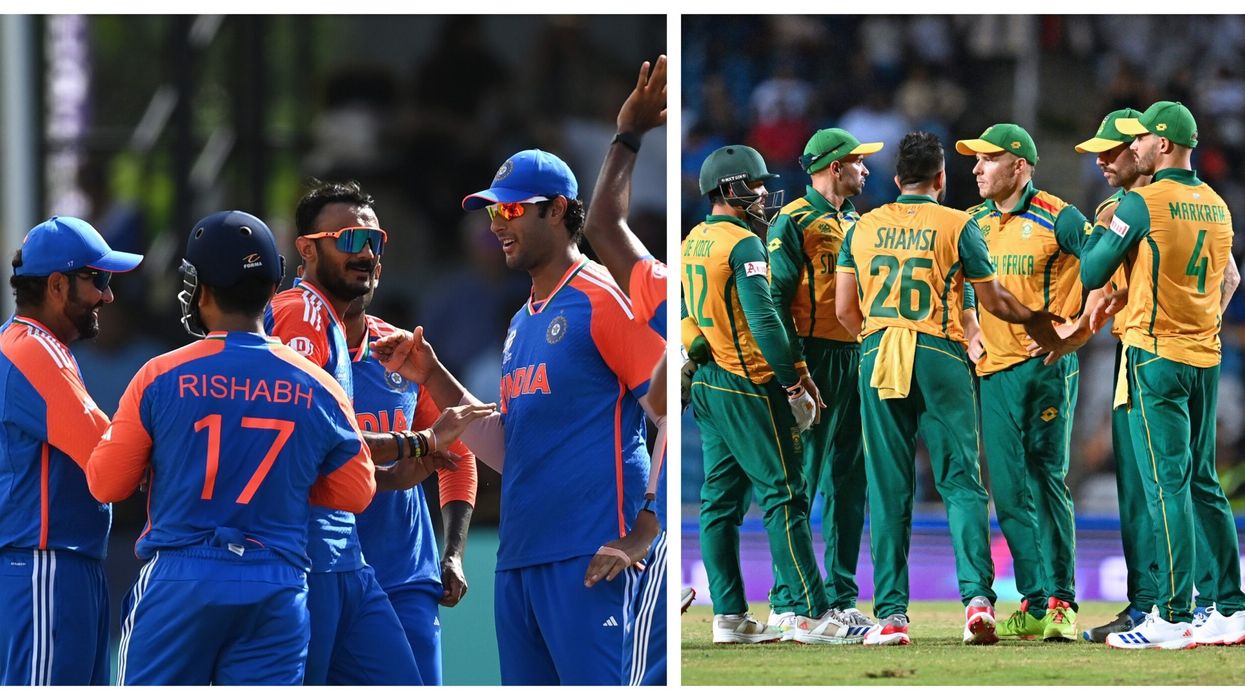India will aim to end their global title drought, while South Africa seeks to shed their 'chokers' tag at Kensington Oval on Saturday in the T20 World Cup final.
Both teams have had flawless campaigns and secured comprehensive victories in the semi-finals, ensuring that the tournament's best two sides have made it to the final in Bridgetown.
South Africa halted Afghanistan's fairytale run in the first semi-final in Trinidad, while India ended England's title defence in Guyana, marking India's third consecutive final in a global event across all formats.
India captain Rohit Sharma hopes his team, who lost in the finals of the World Test Championship and the 50-over World Cup last year, will succeed this time.
Both Rohit, 37, and Virat Kohli, 35, might be playing their last T20 World Cup, and winning the trophy would be an ideal farewell for them.
India seem well-prepared with a solid game plan and the necessary personnel.
Rohit's batting at the top of the order reflects India's approach, which focuses on collective attacking efforts rather than relying on a single match-winning performance.
India's three-pronged spin attack has been effective in the latter stages of the tournament, and pace bowler Jasprit Bumrah has been outstanding.
Rohit attributes their success to maintaining a calm dressing room. "We do understand the occasion but for us it's important to keep calm and composed," he said. "That helps us make good decisions. We need to make good decisions through the 40 overs."
Kohli's recent struggle for runs is a concern, but Rohit is confident in his partner's abilities. "We understand his class. When you have played for 15 years, form is never a problem," he said. "He's probably saving it for the final."
South Africa, reaching their first World Cup final in any format after seven semi-final exits, will also face a test of nerves. Their pace attack has consistently performed, compensating for any batting failures.
Opener Quinton de Kock has leveraged his Caribbean Premier League experience, and the team has significant batting power in the middle order.
Captain Aiden Markram, who has led South Africa to 10 consecutive wins, emphasises the personal motivation in reaching the final. "It's a personal and individual motivation that you get to a final, to earn the opportunity to hopefully lift the trophy," Markram said.
"We feel and we believe that we can compete with the best in the world and we can win trophies. And it's nice for us to now have that opportunity ..."
Squads:
India: Rohit Sharma (c), Virat Kohli, Rishabh Pant (wk), Suryakumar Yadav, Shivam Dube, Hardik Pandya, Ravindra Jadeja, Axar Patel, Kuldeep Yadav, Arshdeep Singh, Jasprit Bumrah, Yuzvendra Chahal, Sanju Samson, Mohammed Siraj, Yashasvi Jaiswal.
South Africa: Quinton de Kock (wk), Reeza Hendricks, Aiden Markram (c), Heinrich Klaasen, David Miller, Tristan Stubbs, Marco Jansen, Keshav Maharaj, Kagiso Rabada, Anrich Nortje, Tabraiz Shamsi, Ottneil Baartman, Gerald Coetzee, Bjorn Fortuin, Ryan Rickelton.
(With inputs from Agencies)





